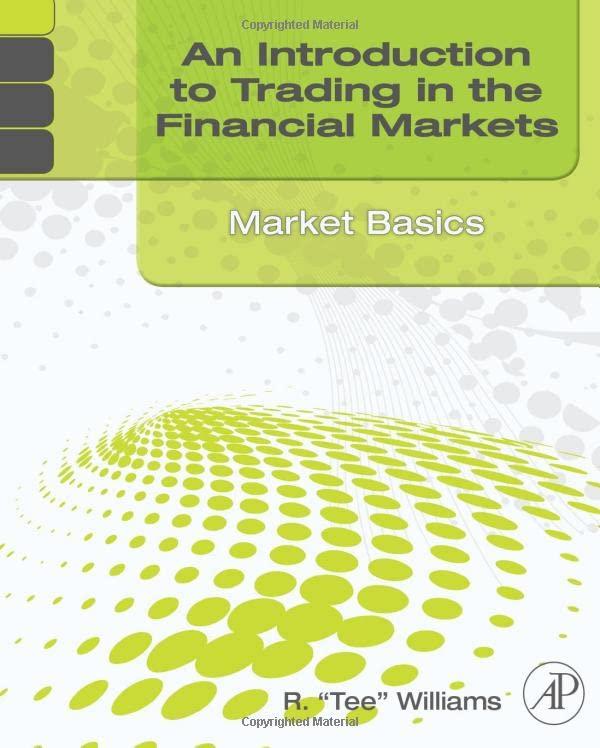Question
Bond Valuation and Interest Rate Risk The Garraty Company has two bond issues outstanding. Both bonds pay $100 annual interest plus $1,000 at maturity. Bond
Bond Valuation and Interest Rate Risk The Garraty Company has two bond issues outstanding. Both bonds pay $100 annual interest plus $1,000 at maturity. Bond L has a maturity of 15 years, and Bond S has a maturity of 1 year. What will be the value of each of these bonds when the going rate of interest is 6%? Assume that there is only one more interest payment to be made on Bond S. Do not round intermediate calculations. Round your answers to the nearest cent. Bond L: $ Bond S: $ What will be the value of each of these bonds when the going rate of interest is 10%? Assume that there is only one more interest payment to be made on Bond S. Do not round intermediate calculations. Round your answers to the nearest cent. Bond L: $ Bond S: $ What will be the value of each of these bonds when the going rate of interest is 12%? Assume that there is only one more interest payment to be made on Bond S. Do not round intermediate calculations. Round your answers to the nearest cent. Bond L: $ Bond S: $ Why does the longer-term (15-year) bond fluctuate more when interest rates change than does the shorter-term bond (1 year)? I. Longer-term bonds have more interest rate risk than shorter-term bonds. II. Longer-term bonds have less interest rate risk than shorter-term bonds. III. Longer-term bonds have less reinvestment rate risk than shorter-term bonds.
Step by Step Solution
There are 3 Steps involved in it
Step: 1

Get Instant Access to Expert-Tailored Solutions
See step-by-step solutions with expert insights and AI powered tools for academic success
Step: 2

Step: 3

Ace Your Homework with AI
Get the answers you need in no time with our AI-driven, step-by-step assistance
Get Started


